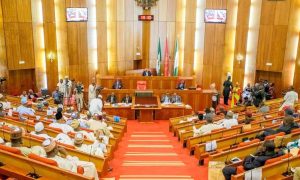With Nigeria’s oil production consistently failing to meet budget benchmarks and allotted OPEC quotas, the industry’s regulators and operators have come under severe pressure to fix the hostile operating environment that has seen both investors and international contractors move away from the country.
Against the backdrop of the OPEC oil production quota of 1.5 million barrels per day, the latest data from the Nigerian Upstream Petroleum Regulatory Commission, NUPRC, shows that the country has recorded over 3.011 million barrels production shortfall in the first five months of the year, amounting to over $264.97 million (about N400 billion) revenue loss using an average Bonny Light price of $88 per barrel.
Vanguard’s finding also shows that the country’s oil output has dropped to around 1.2 million barrels per day, down from a peak of 2.5 million barrels per day in the early 2000s.
Industry experts say the circumstances leading to output decline are still much within the system, adding that it might even worsen in the months ahead if nothing drastic is done to arrest the slide.
They are projecting that the production shortfall might push the attendant oil revenue shortfall to N1.0 trillion by the end of the year, a situation which would have significantly reduced the government’s budgeted N15.7 trillion revenue for the 2024 fiscal year.
Already, the Federal Government has hinted that it may not achieve its proposed revenue estimate for the fiscal year due to factors, including under-performance of the oil sector.
In its report, titled ‘’Accelerated Stabilisation and Advancement Plan (ASAP)’’, the Finance Ministry stated: “Our ability to achieve the 2024 budgeted revenue step-up of 77.4 per cent from 2023 actual is at risk should oil production remain 27.0 per cent below budget.”
“50 per cent of the annualised YTD (year-to-date) variance suggests a lower-than-budgeted revenue of N15.7 trillion at the current run rate.”



























